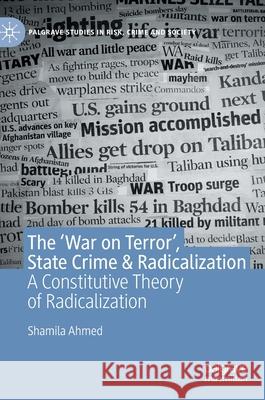The 'War on Terror', State Crime & Radicalization: A Constitutive Theory of Radicalization » książka
topmenu
The 'War on Terror', State Crime & Radicalization: A Constitutive Theory of Radicalization
ISBN-13: 9783030401375 / Angielski / Twarda / 2020 / 262 str.
The 'War on Terror', State Crime & Radicalization: A Constitutive Theory of Radicalization
ISBN-13: 9783030401375 / Angielski / Twarda / 2020 / 262 str.
cena 341,34
(netto: 325,09 VAT: 5%)
Najniższa cena z 30 dni: 327,68
(netto: 325,09 VAT: 5%)
Najniższa cena z 30 dni: 327,68
Termin realizacji zamówienia:
ok. 16-18 dni roboczych.
ok. 16-18 dni roboczych.
Darmowa dostawa!
Kategorie:
Kategorie BISAC:
Wydawca:
Palgrave MacMillan
Seria wydawnicza:
Język:
Angielski
ISBN-13:
9783030401375
Rok wydania:
2020
Wydanie:
2020
Numer serii:
000768721
Ilość stron:
262
Waga:
0.48 kg
Wymiary:
21.01 x 14.81 x 1.75
Oprawa:
Twarda
Wolumenów:
01
Dodatkowe informacje:
Wydanie ilustrowane











